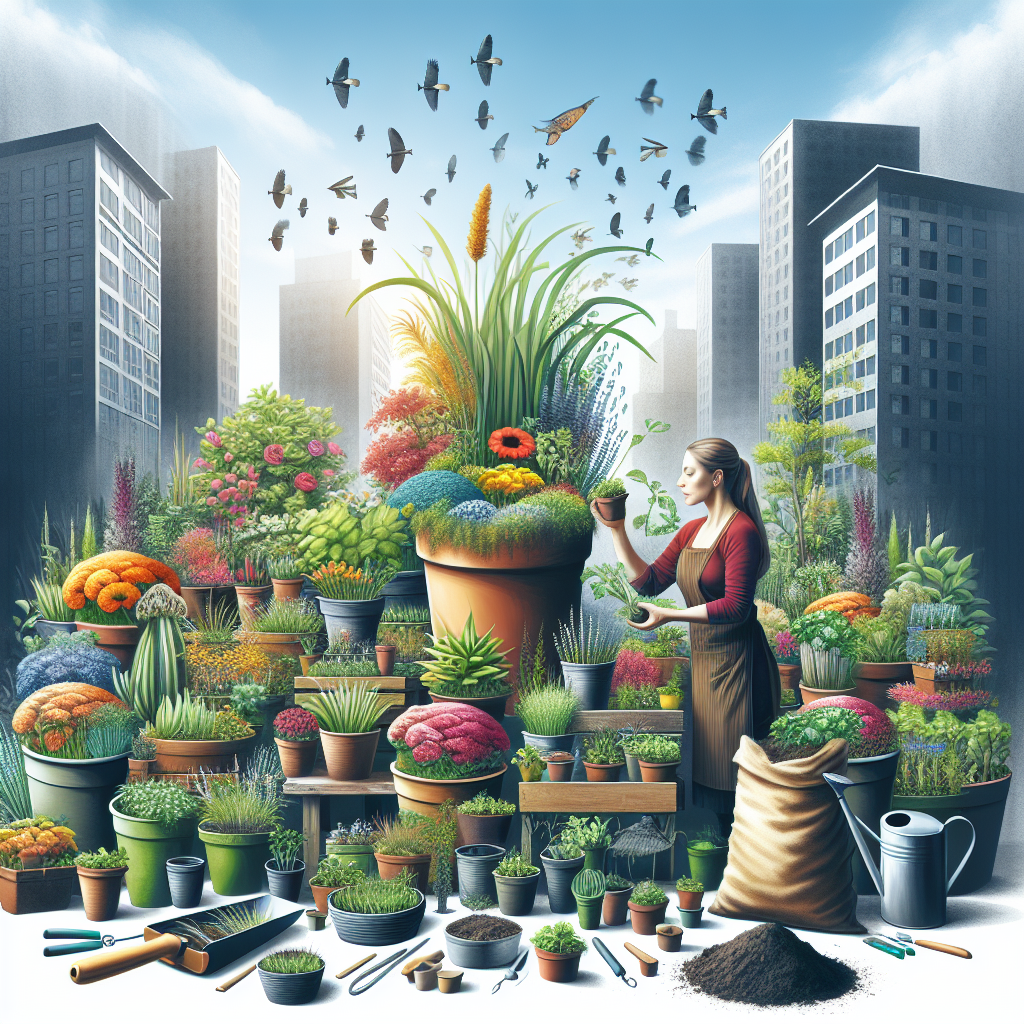Maximizing Your Space: Container Gardening Tips
When it comes to making the most out of your small outdoor spaces, nothing beats the versatility and charm of container gardening. Perfect for patios, balconies, and even windowsills, container gardens allow you to cultivate a wide range of plants, from flowers to veggies, without the need for expansive garden beds. In this post, we’ll delve into some essential tips that will help your container garden flourish, even if you’re working with limited space.
Understanding Container Gardening
Container gardening involves growing plants in containers instead of planting them directly in the ground. This approach offers several advantages, such as mobility, control over soil quality, and protection from soil-borne diseases. However, it also comes with its own set of challenges, like ensuring proper drainage and managing limited soil resources.
Choose the Right Containers
The first step is selecting appropriate containers for your plants. Look for pots with ample drainage holes to prevent waterlogging, which can lead to root rot. If you fall for a container without holes, be prepared to drill some yourself. Materials can vary from traditional terracotta to modern plastics and even fabric pots, which offer excellent aeration. Consider the size of the container relative to the plants you wish to grow; inadequate space can stunt a plant’s growth or lead to overcrowded roots.
Selecting Soil and Fertilizer
Using the right soil is crucial for the success of your container garden. A high-quality potting mix is generally preferred over garden soil, as it’s formulated to ensure proper drainage and aeration. Additionally, potting mixes are usually sterile, reducing the risk of disease.
Remember to feed your plants. Fertilizer replenishes nutrients that plants consume from the soil. A balanced, water-soluble fertilizer applied regularly can make a significant difference in plant health and yield. Products like Miracle-Gro Water Soluble All Purpose Plant Food offer a quick and efficient way to provide your container plants with the necessary nutrients. Always follow the product’s instructions for the best results.
Consider Plant Selection
Choosing the right plants is a key step in container gardening. Some plants do better in containers than others due to their growth habits and size. Dwarf varieties of vegetables and compact herbs are excellent choices for container gardening. When it comes to flowers, options like petunias, marigolds, and geraniums are all popular for their adaptability and beauty in container settings. Make sure to consider the sunlight requirements of each plant to place them in the most suitable spot.
Watering Wisely
Water management is another crucial aspect. Containers dry out faster than in-ground beds, especially in hot weather, so regular watering is necessary. However, avoid overwatering, as it can be just as harmful as under-watering. A good rule of thumb is to water when the top inch of soil feels dry to the touch. For those with busy schedules, self-watering planters like those from Lechuza can be a true lifesaver, ensuring your plants receive consistent moisture without constant supervision.
Location and Light Conditions
Sunlight is essential for plant growth. While different plants have varied light needs, most vegetables and blooming plants require at least 6 to 8 hours of direct sunlight daily. Place your containers in a spot that receives the appropriate amount of sunlight for your chosen plants. For those with limited light exposure, consider shade-tolerant plants or use grow lights to supplement natural light.
Regular Maintenance
Container plants require regular attention. Monitor your plants for pests and diseases, prune dead or diseased foliage, and harvest ripe vegetables promptly. This not only keeps your garden looking attractive but also encourages more productive growth.
Rotate Crops and Refresh Soil
Crop rotation isn’t just for large-scale farming. Rotating plant varieties in your containers can prevent the buildup of pathogens in the soil. Additionally, refreshing the soil every growing season by replacing or amending it with new compost or potting mix can provide a nutrient boost and improve soil structure.
Advantages of Mulching
Mulching isn’t only beneficial in traditional gardens; it can also be valuable in container gardens. Mulch helps retain soil moisture, regulate temperature, and suppress weeds. Consider organic mulches like straw or shredded leaves, which can also add nutrients to the soil as they decompose.
Accessorize and Personalize
Don’t forget to add your personal touch to your container garden. Decorative pots, plant stands, and garden ornaments can transform your space aesthetically and make your gardening experience even more enjoyable.
In Summary
Container gardening offers an accessible way to grow plants in small spaces, combining practicality with creativity. By choosing the right containers, selecting suitable plants, and maintaining proper care, your container garden can thrive, providing you with the joys of gardening regardless of space constraints.
For more inspiration and tips on making the most of your small outdoor space, check out the wealth of gardening resources and guides available at the Royal Horticultural Society’s website or visit the National Gardening Association for a community of like-minded garden enthusiasts.
Remember, with a little planning and the right approach, you can maximize your space and enjoy fresh flowers, herbs, and vegetables all season long. Happy gardening!
This article is for informational purposes only and does not constitute professional gardening advice. Before using any products mentioned, please read the instructions and consider the needs of your specific plants and gardening conditions.

